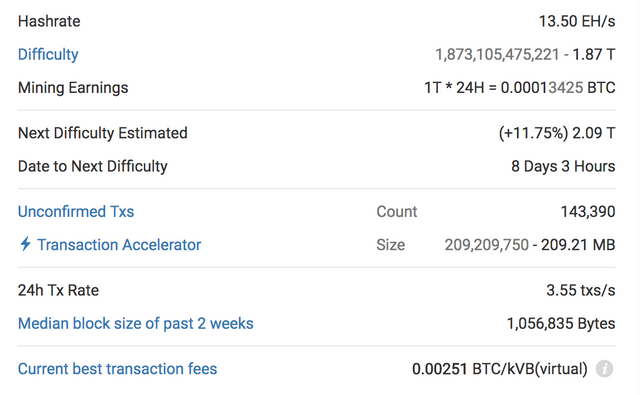#The 10500 tx a second please
Today I've read an article about the yearly peak in holiday-shopping payments.
Which made me think (and calculate) about how many transactions we need in a real-life scenario, worldwide.
As a fan of all things crypto, and a bitcoin oldtimer, I always like to make some comparisons.
And asked myself the question, how many tx/sec do we really need?
The country I live in, Belgium, has a monopolistic payment provider (Worldline) which has close to all electronic payment PoS terminals in shops and supermarkets under it's control (there are other players on this market here, but they are so tiny I don't mind about them for now).
This payment provider will be much like many others in the world; they allow you to make a payment by credit or debit card ot via the local inter-bank systems. I'm not going to bore you with those details: these terminals, around the holiday shopping seasons always have a peak moment: where they do 8.4 million payments in 24 hours.
With about 11 million people in Belgium, and 3.5 million active shoppers according to the demographics, we can estimate the following:
(I used rounded numbers for ease of comparison)
9 million transactions; 4 million shoppers, 24 hour timespan, means:
0.009375 transactions per person per hour on average
or
0.00002604 transactions per person, per second on average.
If we extrapolate this situation (like the whole world would be at the level of Belgium in both economy, tech and readiness to shop-til-you-drop)... this would mean about 4 billion active shoppers (taken that there are 7.5 billion people on the world, of which little more than halve will start shopping and electronically paying).
That makes a rounded number of 375.000.000 transactions an hour or 105000 a second (worldwide on average)
374976000 and 104160 -if you want the exact nrs-
Take also into account that most of the transactions in Belgium are done on rather old terminals (some are 5-10 years old) and need a physical card to be inserted, connect to the internet, send their data to the server or 'cloud' for the bank payments, and need a PIN confirmation - a process that takes about 10 to 30 seconds per transaction per person. This puts many people off, so if we would have a more modern, faster and efficient system, I think it would be safe to say that this 8.4 million transaction peak would easily go up to 12 million.
That being said. The current worldwide capacity per second of the biggest crypto network in hashing power (the Bitcoin nodes network) is 3.55 tx/sec over a 24 hour average.

Crypto can't do it (for now)
That network is of course not the only one (there are crypto systems with a much higher transaction average, but they lack the adoption, capacity or decentralisation to be even remotely capable of doing this worldwide).
There is a long technical way to go for any crypto network to come close to the server-based, centralised systems, in managing a payment network at peak moments.
I don't even think bitcoin (or any of its peers) are currently capable of being a real payment network at all, for that it needs to be used as money, and be regulated for people to accept it (I's like to see another mentality, but most average people only trust something when their state-system approves it for them and tell them on TV that it's OK to use).
The main comparison is that we're currently at 3.55 to 6 tx/sec on bitcoin ... and at peok moments we'll need about 105000 tx/sec. (if you look at it as a payment network).
Pure for reference, the other cryptos do the following at time of writing (24 dec 2017):
Bitcoin: 3.55 tx/sec
BitcoinCash: 0.50 tx/sec (1850 per hour on average)
Litecoin: 1.27 tx/sec (4574 per hour)
Ethereum: 10.30 tx/sec (37158 per hour)
Just a fun thought: if we can even achieve a tenth of what the payment networks do at the moment (10500 transactions a second), then we would have a very good, performant and competitive product/network in place... on average this would cope with the demand easily, and only at peak moments it would result in less performance.
Congratulations @strimbello! You have received a personal award!
Click on the badge to view your own Board of Honor on SteemitBoard.
Downvoting a post can decrease pending rewards and make it less visible. Common reasons:
Submit
Congratulations @strimbello! You received a personal award!
You can view your badges on your Steem Board and compare to others on the Steem Ranking
Do not miss the last post from @steemitboard:
Vote for @Steemitboard as a witness to get one more award and increased upvotes!
Downvoting a post can decrease pending rewards and make it less visible. Common reasons:
Submit